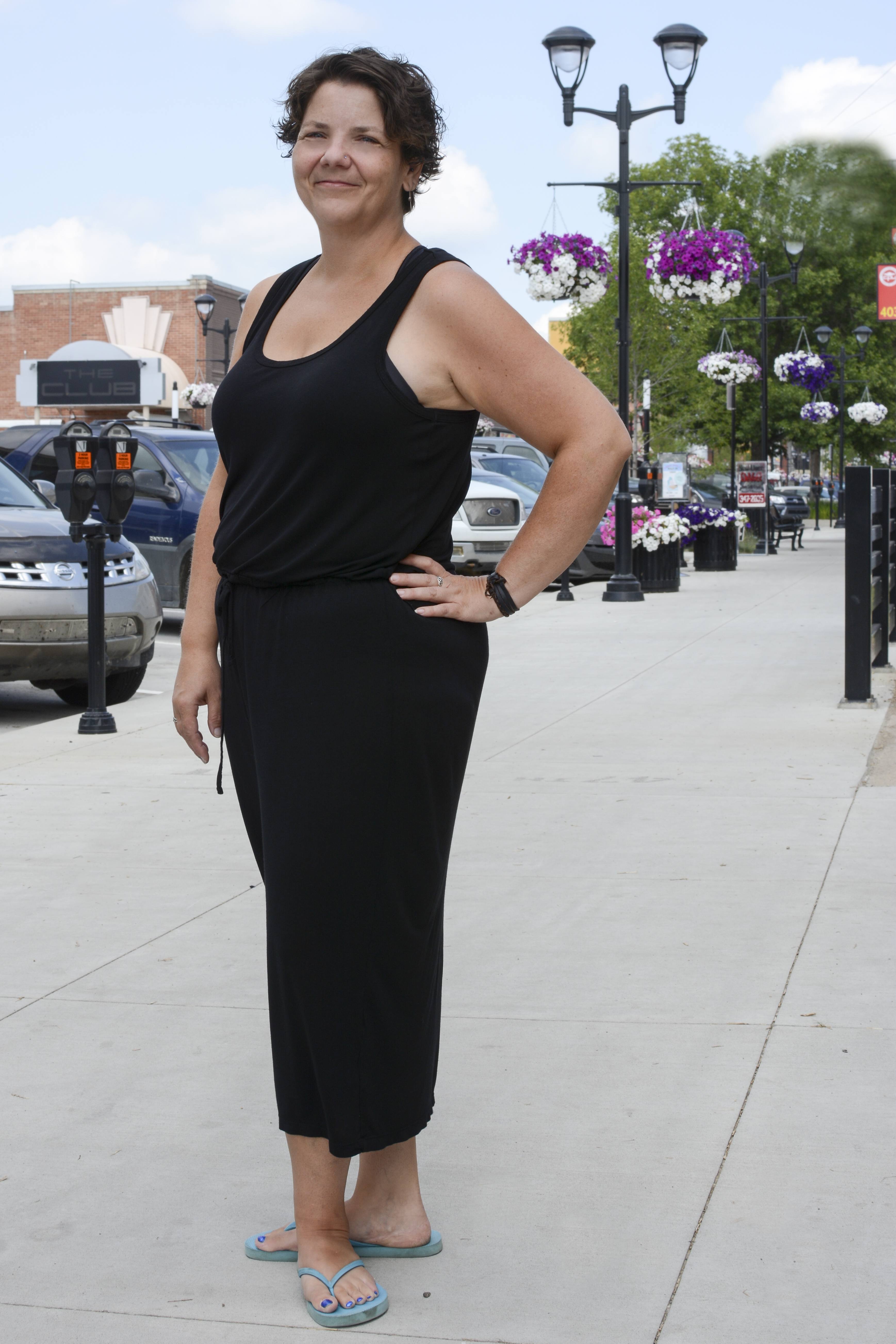There are times when Red Deer resident Jennifer Vanderschaeghe walks past a mirror and is still quite shocked at the image that is reflected back.
After losing 130 lbs. it’s a perfectly normal and even exhilarating feeling – life is very, very different now than it was just a couple of years ago when she started her weight loss journey at 314 lb.
She underwent surgery for what’s called a gastric sleeve, but it’s not like the procedure is a complete and magical cure for a person’s weight issues. There’s lots of preparation before it can even happen – including the shedding of additional weight and perhaps more daunting an exploration of why the problem became so serious over the years.
Operations like gastric sleeve surgery make the stomach smaller. With a smaller stomach, people feel full much faster then before.
It also means they will need to make lifelong changes in how they eat—including much smaller portion sizes and very different foods—in order to control their weight.
For Vanderschaeghe, the process began after conversations with a friend and her own doctor a few years back. She recalls her struggle with food beginning when she was a kid, and over time it grew into something of a coping mechanism.
It was time for change. “My first appointment was in May of 2011, and then seven months later I had my surgery.”
In preparation for the surgery, she went on a strict diet of eating one cup of food for each meal. That process in itself was quite revelatory. “It’s quite earth-shattering how little food you can actually live on.”
Any cooked food was encouraged, but there were things that simply had to be crossed off the list such as pop, caffeine, dining out and tasty treats like pizza and cheese. But healthy foods like lettuce were allowed with no limits, however.
“That meant I had some really good salads,” she added with a laugh. “And you also become very strategic about what you would put in that single cup.”
Proteins were of course critical as they help make a person feel satisfied and have a bit of ‘staying power’. “I would cook chicken or beef and then add some vegetables and nuts, and then add that into the salad.”
Ultimately, a person becomes much more mindful when it comes to eating.
“You become really aware of what you are hungry for. When you put protein into your body and you wait until your body knows it’s full, you are no longer hungry. But your head might still tell you you are hungry.
“So it’s also learning about all the reasons why we eat. It’s not always about really requiring food – people tend to just not really listen to their bodies.”
Adhering to the pre-surgery diet also helps transform a person’s thinking about food in general and portion sizes in particular, she said.
Vanderschaeghe even switched to smaller plates.
Folks today have often been brought up to clean their plates, so if that plate is smaller, it becomes much easier to cut down on what we consume. Studies have also shown that the average dinner plate is far larger now than it was even back in the 1950s.
Meanwhile, along the way there have been some funny moments as the weight was coming off. If acquaintances hadn’t seen her in a while, she was occasionally not recognized.
She recalls running into former Mayor Morris Flewwelling and his wife Hazel at a local function. She greeted them, but there wasn’t much of a conversation and oddly, it almost felt like they didn’t really know her.
So she moved on to chat with others, and a few seconds later Morris quickly approached her saying he hadn’t recognized her due to the physical transformation.
“Morris came running up after and said, ‘Jennifer, we had no idea it was you’,” she laughed.
As mentioned, the surgery isn’t a be-all, end-all solution when it comes to weight management. It’s a powerful tool to be sure, but there are impacts that Vanderschaeghe has had to make some adjustments to.
One of the results of the surgery is an end to the production of the enzyme Ghrelin – the ‘hunger hormone’ in her stomach. “That enzyme is the stomach telling your body that it is hungry. I now will never know whether or not I am hungry. That helps, because my body will never trigger me to eat – ever.
“So my body tells me (to eat) when I’m really low on energy and sugar – sort of hypoglycemic,” she said. “You start to feel really sick, and you have to get something in there.”
It’s something of a balancing act, as a person can’t eat too much as the smaller-sized stomach simply can’t cope with it. But you have to eat regularly and eat well, so as to maintain healthy levels of both blood sugar and proper nutrition.
Again, it’s about really considering your choices. “You become really aware of how much food you can put into your body,” she points out. “You now have to eat less, eat slowly, and be strategic about how you eat.”
Today, she’s looking terrific and feeling a whole new spark of energy than ever before. Confidence levels have risen, and Vanderschaeghe said she feels way more sexy than she did before.
“I’m walking faster than I ever did,” she said with a smile. “I can also cut my lawn in no time, and I have a significantly large yard.”
editor@reddeerexpress.com



